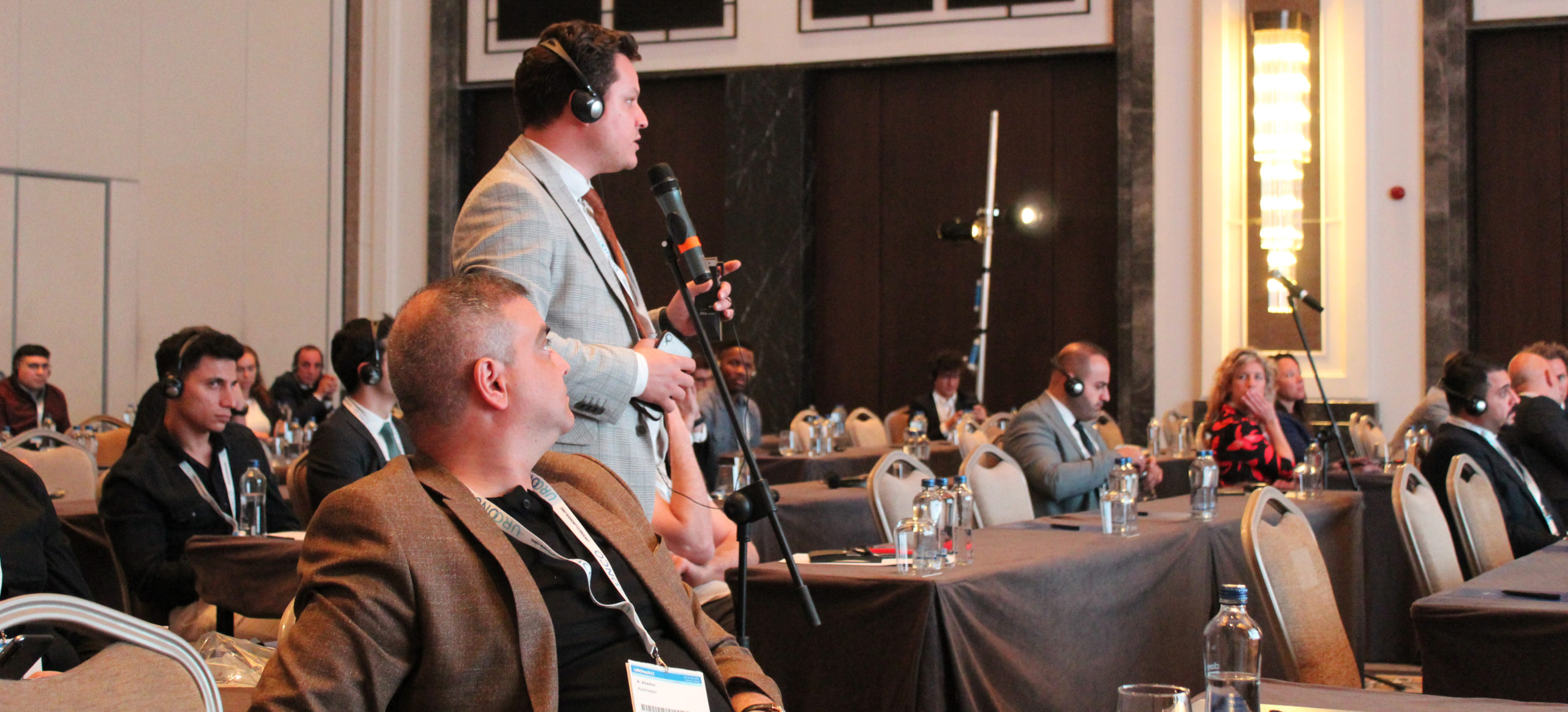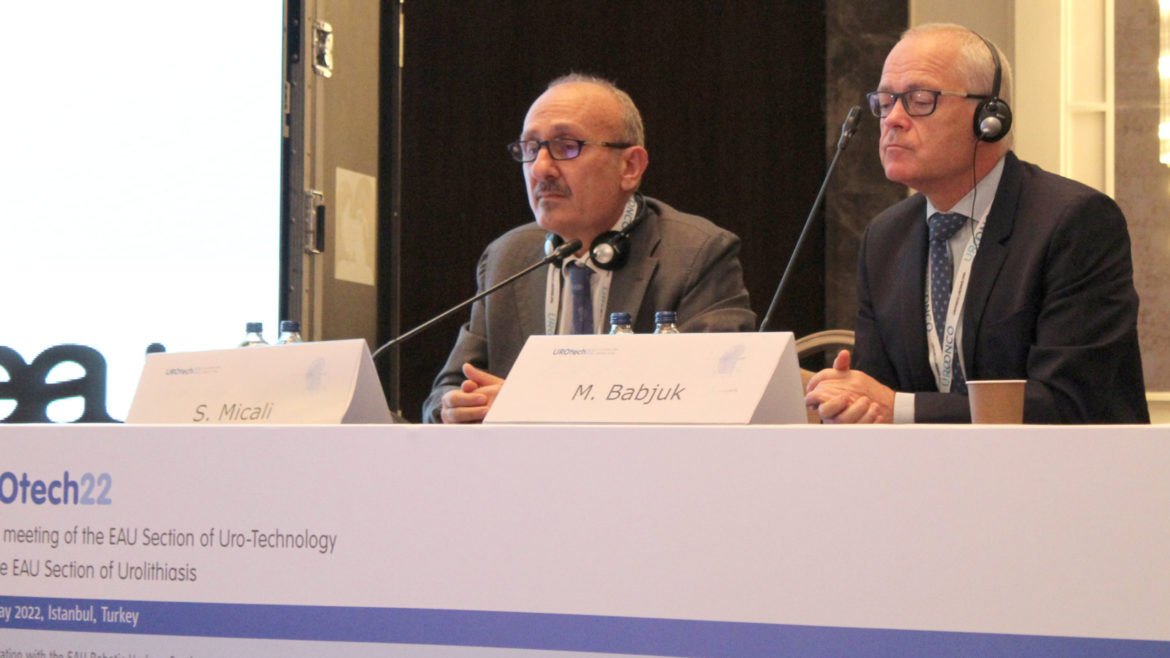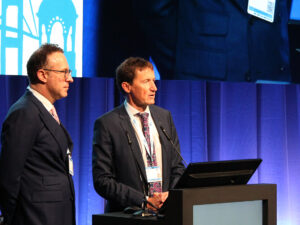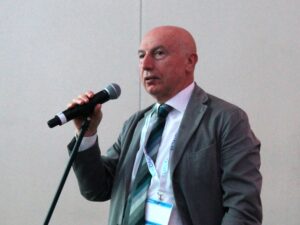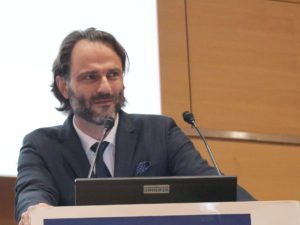Somewhat smaller in stature than the impressive 500-capacity Grand Ballroom, where all of UROtech22’s live surgery is screened, are the rooms where the Thematic Sessions are taking place. And yet, this is where some of the more interesting and in-depth discussions are occurring on Thursday, 26 May, the first day of UROtech22.
One of these sessions is “Endoscopic management of bladder tumours”, a one-and-a-half hour session chaired by Profs. Babjuk (Prague, CZ) and Micali (Modena, IT). The session featured seven speakers and covered a great breadth of the topic, from imaging to risk classification and even the options for training.
“The session was great, on a new and interesting topic,” said Prof. Micali, referring to the increasing prevalence of en-bloc resection (ERBT). “The technique has several advantages but I believe that the most important advantage is that the anatomopathological pattern can give us much more information.”
“Non-muscle invasive bladder cancer is a very common disease and endoscopic resection is one of the most frequent surgeries for urologists, so it deserves our attention,” Prof. Babjuk explained. “What the audience learned in this session is how to improve daily practice and routines. We also saw some top research and technological developments- breakthroughs that are just around the corner and we must be aware of.”
“Usefully, this surgical technique can be performed with the tools that we already have. ERBT has the potential to improve care all across Europe, not just in countries with larger budgets.”
In the session, Dr. Guido Kamphuis and Dr. Martijn de Bruin (both Amsterdam, NL) gave an overview of the limitations of TURBT and in-vivo lenses while showing the advantages of 3D reconstructions and the potential for AI to support pathologists.
Profs. Babjuk and Guven (Konya, TR) examined surgical technique and the implications of resection technique on pathological results. Dr. Dragos (Cambridge, GB) presented a (partly historical) overview of energy sources used for tumour resection, Dr. Bonfante (Modena, IT) examined the complications that could be expected, and finally, Dr. Tokas (Hall in Tirol, AT) presented some of the options for training on endoscopic bladder cancer tumour management.
A new meeting
Both chairmen had a lot of experience in the EAU’s meetings and were positive about the set-up of this first edition of UROtech. UROtech22 is a collaboration between three EAU Sections (ESUT, EULIS and ERUS) and the European School of Urology, offering delegates the very latest in technology, mainly in the form of (semi-) live surgical demonstrations by top surgeons.
Prof. Micali felt that the structure of the meeting was very complete, offering both live surgery, thematic sessions and poster sessions for new research and young urologists.
Prof. Babjuk: “This is the first UROtech, and I’m interested to see how it goes over the coming days. This is a technology meeting, it makes sense that the meeting is also served by that technology. Having three surgeries in one room where people can separately discuss and change from one channel to another, it’s an attractive format. The set-up is flexible and scientifically attractive.”
“It’s important for subspecialties to work together,” Prof. Micali agreed. “The main topic is urology and we all work together under that umbrella.”
